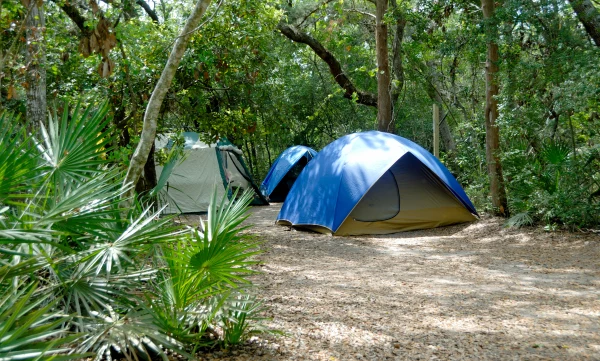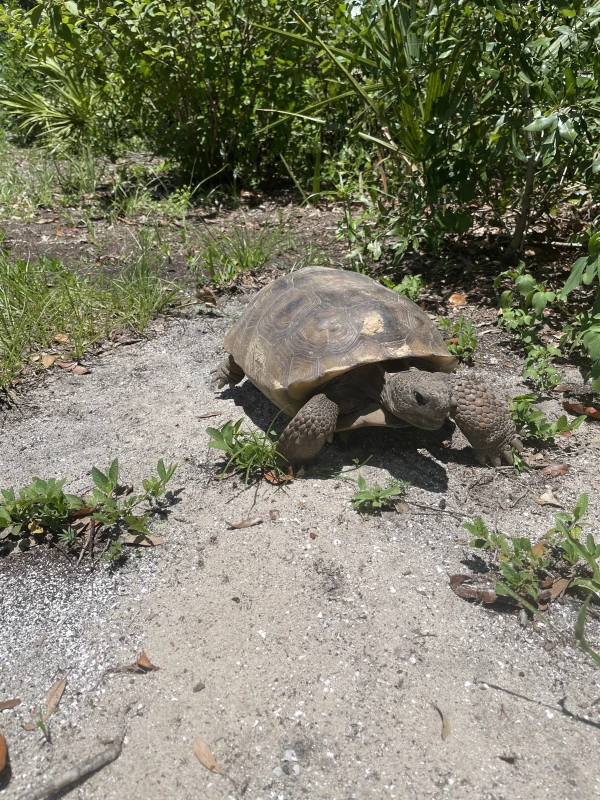
Lithia Springs Conservation Park features crystal clear waters and ancient history
We're surrounded by water, here in steamy Florida. In our attempts to beat the heat, many of us have floated in backyard pools, tubed down rivers, and bobbed around the gulf. However, not many can say they've dived into the vibrant turquoise water of a natural spring.
At Lithia Springs Conservation Park, where the water is always 72 degrees, bathers and waders can frolic in one of Florida's oldest swimming holes. For thousands of years Lithia Spring has been a treasured spot for cooling off and marveling at Hillsborough County's breathtaking beauty.
The history behind the springs
Like the community it's located in, Lithia Springs takes its title from the periodic table of elements. The name Lithia is a nod to the naturally occurring lithium oxide found in the spring water, which was discovered in the early 1900s.
However, the park's history goes back much further. Over 12,000 years ago Native Americans inhabited and traveled through Florida, including the Alafia River watershed. Archeological evidence suggests that indigenous people lived in the Lithia Springs area around 5,000 BC. No doubt Florida's original residents treasured the crystal-clear waters just as we do today.
Skipping ahead 7,000 years to sometime after 1900, historical records tell of a man by the name of the Rev. Charles Kingsley (no known relation to the English author) moving to the area from Bloomington. Kingsley purchased the land containing the springs.
After noticing that the spring water had a different taste, Kingsley sent samples for testing. The results indicated high concentrations of the mineral lithium, an alkaline white powder used in ceramics and glass, and in modern times, used in lithium batteries and nuclear industries. With this news, the community, which at the time was known as Pelot, changed its name to Lithia in 1904.
In 1937, a mining company, Gardinier, Inc., purchased the springs and surrounding land. Twenty years later, Hillsborough County began leasing the area from the company, now known as Mosaic, for $1 per year plus the cost of property taxes. Today, the park is open to the public and attracts many looking to experience one of Florida's oldest swimming holes.
Camping, fishing, boating, and night swims
Though it's hard to compete with the springs' alluring, pristine water, Lithia Springs Conservation Park has much more to offer than just swimming and snorkeling. The park also features a canoe/kayak launch on the Alafia River and a sandy volleyball court.
For those who simply want to relax, guests are welcome to spend the day grilling and chilling at one the many shaded tables. Picinic shelters are available for rent. By the end of summer, the park will have a brand-new playground.
If you'd like to stay longer, visitors can rent one of the park's 45 camping sites. Most of these sites are suitable for RVs and include water/shower and electrical services. Campers also have access to restrooms and fire pits. Some of the more highly coveted camping sites border the Alafia River, providing beautiful views and convenient fishing.

Right before the full moon, the park will host a night swim on July 20 from 6 p.m. to 8 p.m. Guests can catch a ranger talk about the park and marvel at the springs when illuminated by underwater lights and beachside torches. Event details and registration are available at Night Swims. General park information can be found at Lithia Springs Conservation Park.
Hiking next door in FishHawk Creek Nature Preserve North
While visiting Lithia Springs, don't forget to check out the nature preserve next door. Across the street, mere feet from the Lithia Springs Conservation Park entrance, is the FishHawk Creek Nature Preserve North.
This Hillsborough County preserve is about 3,300 acres in size and offers a variety of habitats to explore. A 3.1-mile trail takes hikers through several different ecosystems, including marsh, hardwood forest, and pine and scrubby flatwoods.
While you may see the preserve's namesake, the osprey (also known as a fish hawk), there are also opportunities to see an array of other wildlife. For instance, turtle sightings are frequent due to the gopher tortoise colonies located within the park.
For more information, visit FishHawk Creek Nature Preserve North or call (813) 672-7876.


